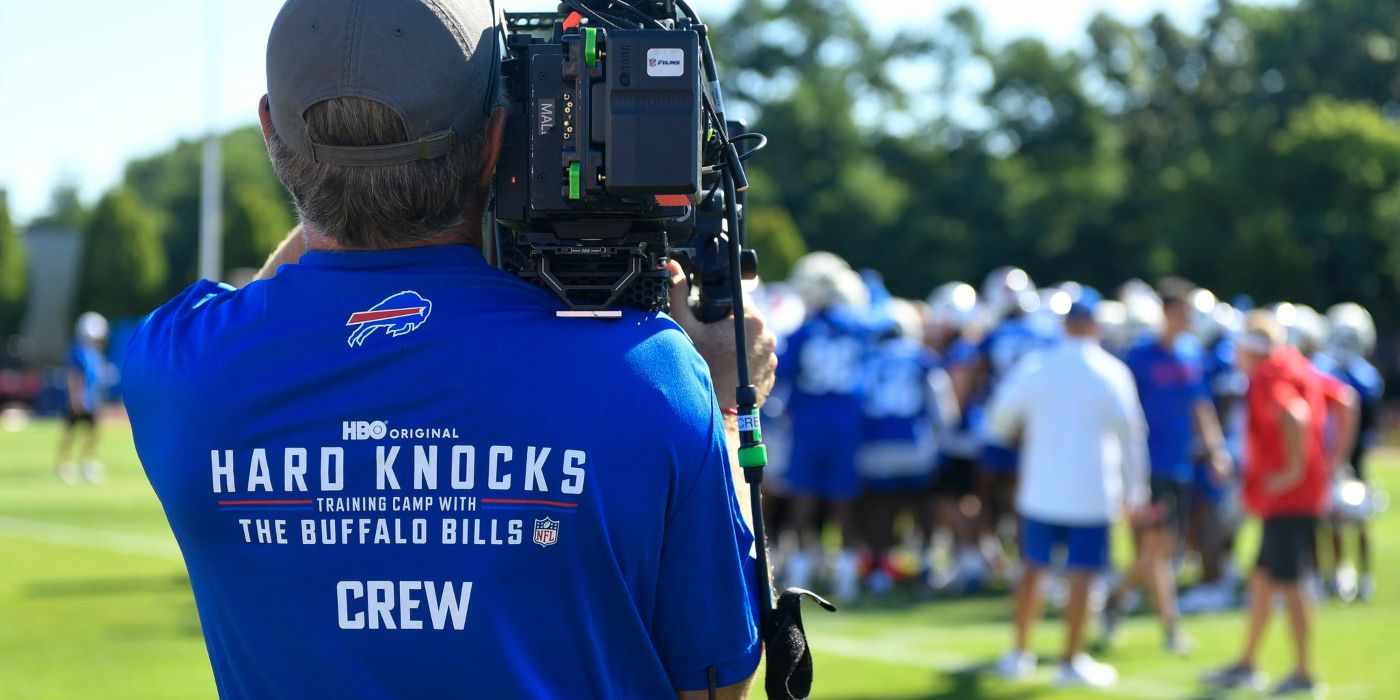How Much Does It Cost to Register a Business Name?

When you’re considering starting a business, comprehension of the costs to register a business name is essential. Typically, a “Doing Business As” (DBA) designation will cost you around $25 and remain valid for five years. Nevertheless, if you’re forming an LLC or corporation, you’ll face a $300 fee for the Certificate of Formation. There are additionally ongoing costs to keep in mind, which can add up quickly. Knowing these details can help you budget effectively and avoid surprises.
Key Takeaways

- Registering a business name as a DBA costs $25, valid for five years.
- LLC and Corporation registration fees are $300 for the Certificate of Formation.
- Name reservation for LLCs or Corporations costs $40 and is valid for 120 days.
- Sole proprietorships and general partnerships do not require formal registration fees.
- Renewal of a DBA is required every five years at a cost of $25.
Understanding Business Registration Fees in Texas

When you’re considering starting a business in Texas, grasping the registration fees involved is crucial.
Registering a Limited Liability Company (LLC) or Corporation requires a $300 filing fee for the Certificate of Formation.
If you’re looking to operate as a sole proprietorship or general partnership, there’s no registration fee, but filing a DBA (Doing Business As) costs $25.
For those who want to reserve a name for an LLC or Corporation, it’ll set you back $40, valid for 120 days.
If you’re a foreign LLC, the application fee is $750.
Remember, ongoing costs include a $50 late fee for the annual franchise tax report, regardless of taxes owed.
Now, you might wonder, how much is it to trademark a business name?
Types of Business Structures and Their Costs

When you’re considering a business structure, it’s important to understand the costs involved.
For instance, registering an LLC costs $300, whereas a corporation has the same fee but additionally requires an annual Statement of Information for $5.
If you’re looking at a DBA, it’s a more budget-friendly $25, but keep in mind that optional filings can add up depending on your structure.
LLC Registration Fees
Registering a Limited Liability Company (LLC) involves specific fees that can vary greatly depending on the state and the structure of the business. In Texas, you’ll pay a $300 fee for the Certificate of Formation. If you’re considering a Limited Liability Partnership (LLP), the registration fee is $200 per partner. Foreign LLCs, wanting to operate in Texas, face a higher fee of $750. Sole proprietorships and general partnerships don’t require formal registration or fees, though a DBA filing is optional at $25. Here’s a quick overview of the fees:
| Business Structure | Registration Fee | Notes |
|---|---|---|
| LLC | $300 | Certificate of Formation |
| LLP | $200/partner | Varies with partners |
| Foreign LLC | $750 | For operating in Texas |
| Sole Proprietorship | $0 (optional $25) | DBA filing optional |
| General Partnership | $0 | No formal registration needed |
Corporation Registration Costs
Establishing a corporation in Texas involves specific costs that you need to evaluate for a successful setup.
First, you’ll pay a $300 filing fee for the Certificate of Formation with the Secretary of State. Furthermore, you must submit an annual report that costs $5, along with a Statement of Information due by May 1, or face a $400 late penalty.
If you want to reserve your business name, that’ll be $40, valid for 120 days. For foreign corporations wishing to operate in Texas, the application for registration costs $750.
Keep in mind that if you plan to operate under a different name, you’ll need to file a DBA, costing $25 and renewable every five years.
DBA Filing Expenses
Grasping the costs associated with filing a DBA, or Doing Business As, is crucial for any business owner in Texas. Depending on your business structure, these expenses can vary greatly. Here’s a breakdown:
| Business Structure | DBA Filing Cost | Renewal Period |
|---|---|---|
| Sole Proprietorship | $25 | Every 5 years |
| General Partnership | $25 | Every 5 years |
| LLC | $25 | Every 5 years |
| Corporation | $25 | Every 5 years |
| LLP | $200 per partner | N/A |
Filing an Assumed Name Certificate

When you choose to operate your business under a name different from your legal name, filing an Assumed Name Certificate, commonly known as a “Doing Business As” (DBA), is a necessary step.
In Texas, this process costs $25 and is valid for up to 10 years. After that period, you’ll need to file for a new certificate to continue using that name.
It’s important to file in every Texas county where your business operates to safeguard your name and goodwill.
Remember these key points:
- No original signatures or notarization are needed for filing.
- You can’t amend the certificate; a new one must be filed for any misleading information.
- Verify compliance to avoid potential legal issues.
Additional Registration Costs

When you’re registering your business name, you likewise need to take into account additional registration costs.
For instance, filing a DBA in Texas costs $25 per county, and if you want to reserve a business name for an LLC or corporation, you’ll pay $40 for 120 days of exclusivity.
Don’t forget that there are furthermore various licensing and permit fees that could apply, depending on your specific business activities and location.
DBA Filing Fees
DBA (Doing Business As) filing fees can be a vital consideration for entrepreneurs looking to establish their brand identity. In Texas, the cost to file a DBA is $25, a one-time fee that allows you to operate under a name different from your legal entity.
Keep in mind that:
- The DBA is valid for five years before needing renewal.
- You must file a DBA in each Texas county where you do business.
- Sole proprietorships and general partnerships can file for a DBA, but corporations and LLCs must register their entity first.
Filing with either the county clerk’s office or the Texas Secretary of State guarantees that your desired name isn’t already in use, making this step fundamental for compliance and branding.
Name Reservation Costs
Reserving a business name is an important step in the registration process, especially if you want to guarantee that your chosen name is available before officially filing your paperwork.
In Texas, the cost to reserve a business name is $40, and this reservation is valid for 120 days. You can file a name reservation online, by mail, fax, or in person with the Texas Secretary of State.
Although you can request a preliminary determination of name availability, the final decision requires processing by the Secretary of State. There’s no limit on how many names you can reserve, and you can cancel them without a fee before the 120 days are up.
If you need to transfer a reserved name, a $15 filing fee applies.
Licensing and Permit Fees
Comprehending the costs associated with licensing and permits is fundamental for any business owner. These fees can vary considerably based on your industry and location, so it’s important to plan accordingly.
Here are some typical costs you might encounter:
- Health permits for restaurants typically start at $250 or more.
- Limited liability partnerships (LLPs) charge $200 per partner for registration.
- National trademarks can cost anywhere from $225 to $600 per class.
Additionally, don’t forget about state-specific requirements, which can add to your total expenses. Always research local regulations to guarantee compliance and avoid unexpected fines.
Ongoing Costs for Registered Businesses

When you register a business, it’s vital to be aware of the ongoing costs that come with maintaining that registration.
In Texas, you must file an annual franchise tax report, incurring a $50 late fee if you miss the May 15 deadline, even when no taxes are owed.
Corporations are likewise required to file a Statement of Information annually by May 1, with a $5 fee and a $400 late fee for non-compliance.
If your business operates under a different name, you’ll need a DBA certificate, costing $25 and renewable every five years.
Furthermore, consider costs for registered agent services and local permits, as staying compliant is critical to avoid penalties.
Annual Franchise Tax Requirements

In Texas, every LLC and corporation must file an annual franchise tax report by the deadline of May 15 each year, regardless of their revenue.
Even in the case that your business earns less than $1.23 million, you’re still required to file this report, though you won’t owe any tax. Failing to submit it on time results in a $50 late filing penalty.
Here are some key points to remember:
- Corporations must file an annual report and a Statement of Information by May 1, incurring a $400 late fee if overdue.
- The franchise tax acts as a maintenance cost for registered entities.
- Compliance is essential for all businesses, including those exempt from taxes.
Stay on top of these requirements to avoid penalties.
Industry-Specific Fees

When you register a business name, it’s important to take into account industry-specific fees that can impact your overall costs.
For instance, if you’re opening a restaurant in Texas, you’ll need to budget for health permits, which can run around $250, plus additional fees for food handler training.
Retail businesses, conversely, must obtain a free sales tax permit, but they might face extra expenses for signage permits, which can range from $20 to $200.
Restaurant Permit Costs
Comprehending the costs associated with obtaining the necessary permits for your restaurant is vital for your overall budgeting.
In Texas, you’ll need to take into account several key fees:
- Health permits, which usually start at $250 or more, depending on local regulations.
- Food handler training, costing between $10 and $50 per person, which is required for your staff.
- Signage permits, ranging from $20 to $200, based on the size and type of signage you choose.
Including these permit costs in your operational budget is critical to guarantee compliance with health and safety regulations.
Retail Sales Tax Permit
Obtaining a retail sales tax permit is a vital step for any business selling tangible goods or taxable services in Texas. You can get this permit for free from the Texas Comptroller’s office, which allows you to collect sales tax from customers legally. This compliance is important to avoid penalties.
Moreover, depending on your location, you may need to secure local sales licenses from your city or county, which can have various costs. If you plan to use signage for your business, be aware that you might also need a signage permit, with fees ranging from $20 to $200.
Even though you operate remotely, you must still obtain a sales tax permit if you sell taxable goods in Texas.
Permits and Licenses Needed

Starting a business often means maneuvering through a maze of permits and licenses to guarantee you’re operating legally and efficiently. In Texas, you’ll need to be aware of several requirements based on your business type.
Here are some key permits and licenses you may need:
- A DBA (Doing Business As) costs $25 and requires renewal every five years.
- If you’re selling taxable goods, you’ll need a free seller’s license from the Texas Comptroller’s office.
- For restaurants, health permits start at $250, plus food handler training costs.
Additionally, construction businesses face licensing fees ranging from $115 to $400, and local permits, like signage, can range from $20 to $200.
Be sure to check local regulations to avoid fines.
Legal Assistance and Compliance Costs

When you register a business in Texas, it’s important to evaluate the costs associated with legal assistance and compliance. Hiring an attorney can range from $200 to $800, depending on your business structure and needs. This support can prevent costly penalties from misfiling or non-compliance with state regulations. Furthermore, consider the yearly cost of registered agent services, which typically runs between $100 and $300. You’ll also need to file an annual franchise tax report, with late penalties starting at $50.
Here’s a breakdown of potential costs:
| Expense Type | Cost Range |
|---|---|
| Legal Fees | $200 – $800 |
| Registered Agent Services | $100 – $300 |
| Franchise Tax Penalty | Starting at $50 |
| Compliance Support | Varies |
| Annual Filing Fees | Varies |
Name Reservation Process and Fees

Securing a business name is a key step in establishing your company, and in Texas, the name reservation process is straightforward.
To reserve your name, you’ll need to complete an application that includes the entity type and your contact details. Here are some important points to remember:
- The filing fee is $40, and your reservation lasts for 120 days.
- You can submit your application online, by mail, fax, or in person.
- If needed, you can withdraw your reservation at any time without a fee or transfer it to someone else for $15.
Following these steps guarantees that your desired business name is protected as you prepare for your launch.
Cost Breakdown for LLC Formation

Forming an LLC in Texas involves several costs that you should be aware of to guarantee you’re financially prepared.
First, there’s a $300 filing fee for the Certificate of Formation. If you want to reserve your business name, it’ll cost you an additional $40 for a name reservation, which lasts for 120 days.
Should you choose to operate under a different name, filing a DBA will set you back $25. Meanwhile, Texas LLCs don’t file annual reports; you must submit an annual franchise tax report, with a $50 late fee if you miss the deadline.
Finally, hiring a registered agent incurs additional yearly costs that vary by provider, so factor that into your budget as well.
Tax Considerations for New Businesses

Comprehending tax considerations is critical for new businesses, especially in Texas, where the absence of a state income tax offers a unique advantage.
Nevertheless, you still need to navigate several tax obligations:
- File an annual franchise tax report; if your revenue exceeds $1.23 million, you’ll incur a fee, but those below this threshold are exempt from paying.
- Obtain a free sales tax permit if you sell tangible goods or taxable services, allowing you to collect sales tax from customers.
- Explore tax exemptions and incentives that may be available, depending on your industry.
Despite no state income tax, ongoing local and state tax obligations can still apply, so make sure you’re aware of these requirements for effective financial planning.
Financial Planning for Business Startups

Starting a business requires careful financial planning to secure success and sustainability.
In Texas, you’ll pay $25 to register a business name via a DBA, whereas LLC and corporation name reservations cost $40. For LLCs and corporations, the Certificate of Formation filing fee is $300.
Don’t forget to factor in ongoing expenses like leasing, utilities, and compliance costs, since 82% of small businesses fail because of cash flow problems. You must file an annual franchise tax report, with a $50 late fee for missed deadlines.
Finally, consider industry-specific fees, such as health permits for restaurants ($250+) and professional licenses ($200-$800), to create a thorough financial plan for your startup.
Conclusion

In conclusion, registering a business name in Texas involves various costs depending on your business structure. A DBA costs $25, whereas forming an LLC or corporation requires a $300 fee. Don’t forget to budget for ongoing expenses, like renewal fees and franchise tax reports. By comprehending these costs upfront, you can better plan your finances and guarantee compliance, allowing your business to operate smoothly and legally. Taking these steps will help you establish a solid foundation for your venture.
Image Via Envato
This article, "How Much Does It Cost to Register a Business Name?" was first published on Small Business Trends
What's Your Reaction?
 Like
0
Like
0
 Dislike
0
Dislike
0
 Love
0
Love
0
 Funny
0
Funny
0
 Angry
0
Angry
0
 Sad
0
Sad
0
 Wow
0
Wow
0





























































































